 Thursday 16 May 2019 12:56pm
Thursday 16 May 2019 12:56pmAn occupational therapist who aims to improve the quality of life for children with disabilities is one of several University of Otago early-stage researchers who have together been awarded more than NZ$1.7 million in Health Research Council funding.
The council announced today that seven University of Otago researchers have secured NZ$1,714,369 in Emerging Research First Grants, a fund dedicated to people who are in the early stages of their research career.
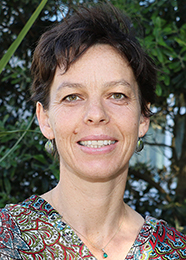
Dr Fiona Graham.
Dr Fiona Graham from the University of Otago, Wellington, receives NZ$233,618 to trial an Occupational Performance Coaching intervention, a family-centred approach that empowers caregivers to support their children with neuro-developmental disabilities to achieve their goals of participating more fully in society.
Together, the Otago researchers receive about half of the national share of funding with nearly NZ$3.7 million awarded nationally to 15 recipients. This is more than last year when six Otago researchers were successful in securing almost NZ$1.5 million.
Dr Graham's trial involves training rehabilitation therapists including physiotherapists, speech therapists and occupational therapists in how to coach parents and caregivers of children with neurodisabilities.
“Parents might have a goal to help their children with cerebral palsy to bath more independently, or to eat a wider range of foods,” Dr Graham explains.
“Parents and caregivers are a key part of the solutions to these kinds of goals for children. Using coaching, a therapist can work with parents to discover what works best in their family and what strategies are sustainable for the family.”
Dr Graham is excited the grant panel prioritised this study with its focus on how the intervention works for Māori families. “We will be investigating how effective the intervention is for Māori and if it needs to be tailored at all to be a better cultural fit for Māori families.”
It is often difficult for rehabilitation interventions to secure research funding, Dr Graham explains, as rehabilitation deals in the “messy reality of people's daily life with lots of variation in how people live”. This is challenging to match with the rigorous design requirements of research funders like HRC.
“This time we pulled it off and HRC have recognised that research of rehabilitation interventions can't follow a simple formula,” Dr Graham says.
“I'm also pretty stoked for the families of children with disabilities. They are a small health consumer group and there are no magic answers for the challenges they face. The fact the HRC has awarded this grant to explore ways to improve the quality of their lives and to help them live well despite disability is very exciting.”
University of Otago Deputy Vice-Chancellor (Research and Enterprise) Professor Richard Blaikie says he is extremely pleased the HRC is supporting the country's future research leaders.
“The university is very pleased to see these outstanding young health researchers being supported as their careers develop with projects that are likely to lead to important developments in health in all cases.”
Other successful researchers are:
Dr Julie Bennett
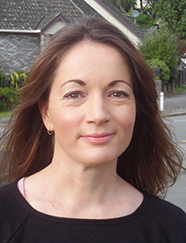
Dr Julie Bennett.
Characteristics of S.pyogenes isolated prior to rheumatic fever diagnosis
NZ$245,000
Acute rheumatic fever and its serious complication, rheumatic heart disease, are preventable diseases triggered by the bacterium S.pyogenes, more commonly known as group A strep. New Zealand has unacceptably high rates of rheumatic fever in Māori and Pacific children, which cause unnecessary suffering and death. Currently, it is not known if group A strep infections (skin and throat infections) isolated prior to the development of rheumatic fever, are the same as those that are isolated when a person is diagnosed with rheumatic fever. This study will provide this data. This data is necessary to predict coverage of vaccines currently being developed and could assist in the design of these vaccines for at-risk groups.
Dr Ayesha Verrall
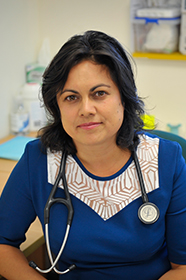
Dr Ayesha Verrall.
An epigenetic marker of BCG protection from M.tuberculosis
NZ$250,000
The tuberculosis (TB) vaccine BCG is the world's most widely administered vaccine, yet it is not known how its partial protection works. The proposal is to recruit people with TB from Indonesia to identify epigenetic markers of BCG protection. This study will assist the development of better vaccines by advancing understanding of protective immunity to TB and potentially providing a marker of protection for use in future clinical trials.
Dr Janice Chew-Harris

Dr Janice Chew-Harris.
A SuPAR prognostic indicator of cardiovascular risk and outcomes
NZ$243,758
Heart disease remains a leading cause of death in New Zealand. This disease is highly complex and has a substantial component of inflammatory dysfunction. Very recently, a blood marker known as soluble urokinase plasminogen activator receptor (suPAR) has been suggested to be important in the regulation of low-grade chronic inflammation in heart disease related processes. This project aims to determine if suPAR concentrations are altered in patients with cardiovascular disease and whether it can be used as a biological marker to aid in predicting those who are at greatest risk of adverse outcomes.
Dr Gabriella Lindberg
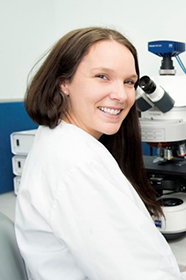
Dr Gabriella Lindberg.
Oxygen control in 3D-bioprinted osteochondral constructs
$249,759
Nearly 17 per cent of New Zealanders suffer from osteoarthritis, causing significant amount of pain, disability, and economic burden estimated to cost NZ$3.2 billion annually. The gold standard clinical treatment remains harvesting a portion of the patient's own tissues, which is limited by availability and/or incomplete healing. The emerging field of 3D-bioprinting holds great promise to address these challenges. This project will help alleviate current issues faced in shortage of personalised orthopaedic replacement grafts for healing of common joint defects. The researchers aim to develop oxygen-carrying bioinks for sophisticated oxygen delivery and functional regeneration of tissues.
Dr Prasath Jayakaran
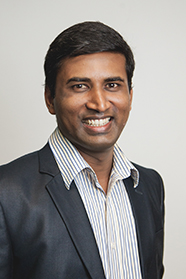
Dr Prasath Jayakaran.
Sensory organisation for balance control in children with strabismus
NZ$244,828
Strabismus, or misalignment of the eyes, is a relatively common childhood disorder with an incidence of about 4 per cent in children under 6 years. While it primarily affects the visual field and the perception of the environment, its effects on balance control is largely unexplored. The research will investigate whether balance control is affected in children with strabismus. Results will provide insight about the nature of compensatory postural adjustments taking place in children with the disease and whether an intervention is needed to improve balance in these children.
Dr Trudy Sullivan
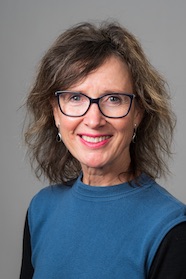
Dr Trudy Sullivan.
Valuing health-related quality of life in New Zealand
NZ$247,406
The valuation of health states is of public health significance in New Zealand. Currently, health agencies and researchers use a health-related quality of life tool (EQ-5D-3L) to help decide which medicines and health technologies to fund. The aim of this project is to validate an updated version of the tool and to explore the health-related preferences of New Zealanders with specific focus on Māori and people with chronic disease or illness.
For further information, contact:
Dr Fiona Graham,
Occupational Therapist
University of Otago, Wellington
Email fi.graham@otago.ac.nz
Liane Topham-Kindley
Senior Communications Adviser
Tel +64 3 479 9065
Mob +64 21 279 9065
Email liane.topham-kindley@otago.ac.nz
Electronic addresses (including email accounts, instant messaging services, or telephone accounts) published on this page are for the sole purpose of contact with the individuals concerned, in their capacity as officers, employees or students of the University of Otago, or their respective organisation. Publication of any such electronic address is not to be taken as consent to receive unsolicited commercial electronic messages by the address holder.
Find an Otago expert
Use our Media Expertise Database to find an Otago researcher for media comment.